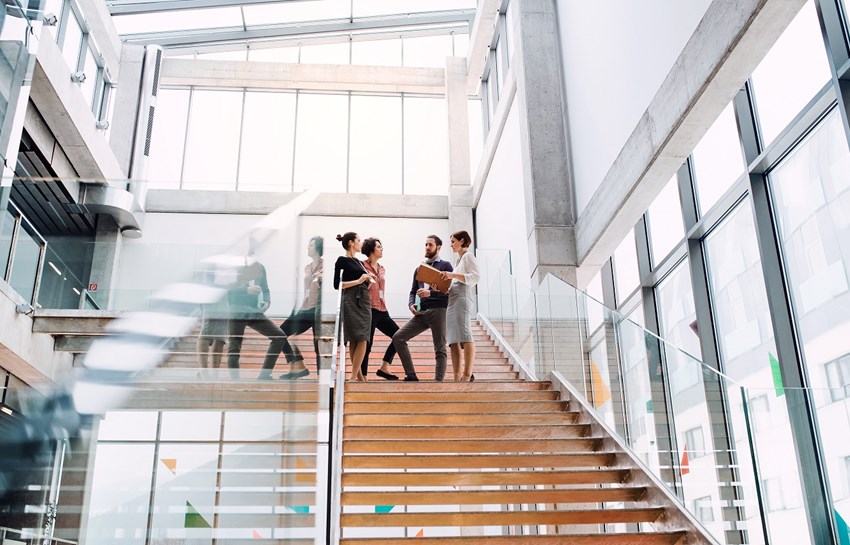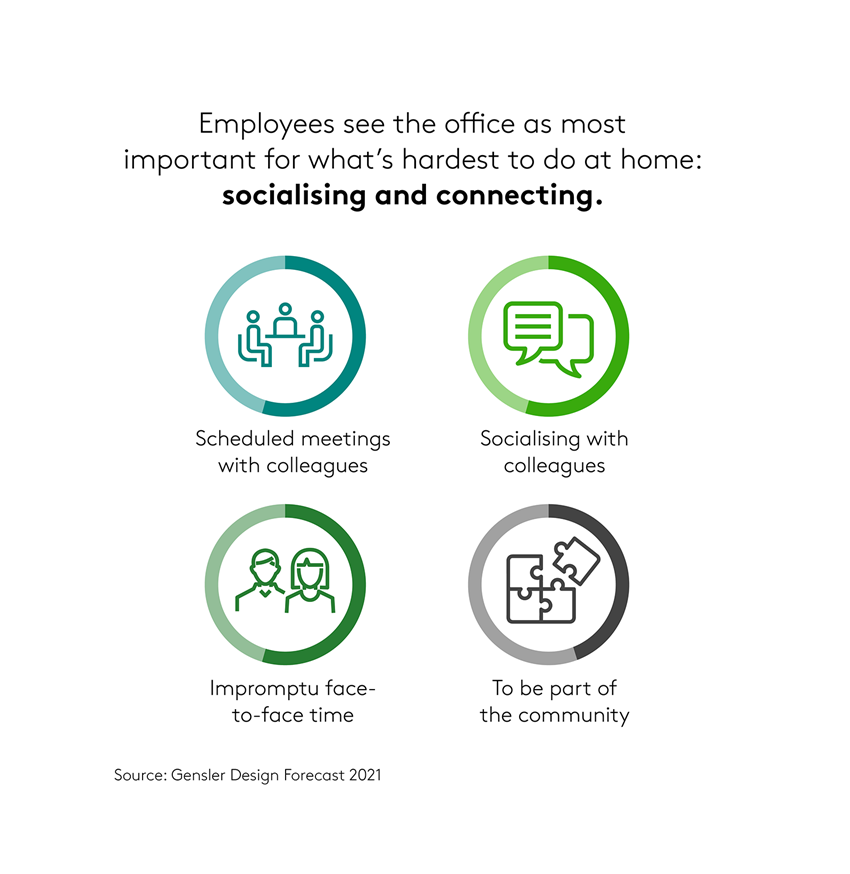The new purpose of the office
A practical and inspiring office is not enough
Currently in-depth research is limited regarding the future office. Many, even though the adaptation varies with size of the organisation, express a proposal for a hybrid working model, where some days are spent in the office and some remote. To attract employees to the office, it’s likely it needs to become something different: sometimes described as the “anti-office” or an office with “add-ons” - a place with a larger purpose than housing employees. In creative businesses it could be an extraordinary place for inspiration and collaboration. In more traditional organisations, it could be an addition of a café, or a gym, a bright coloured or bright lighted room - motivational space of different kinds that wouldn’t usually be found at the home or traditional office.
What we know is that a practical or inspiring work environment will not be attractive without a sufficient indoor climate. A well-ventilated office can instead double the cognitive ability and increase the feeling of comfort. Make sure you understand the complexity of indoor pollutants and the effect of an optimal indoor environment solution.
Read our blog What do you get when you measure CO2 vs VOC
References:
Facility Management Journal (2021) Offices will continue to play a central role in how work gets done | Whitman, Clayton (2020) A look into the workplace post-covid 19: the “anti office” | Morgan, Kate (2021) What is the purpose of the office – and do we still need it?

56%
of the questioned executives expect to need more office space in the coming three years
References:
PwC (2021) US Remote Work Survey 2020: It’s time to reimagine where and how work will get done
Going from working to experiencing the office
Office buildings are known as multifaceted entities normally presenting desks in a certain arrangement. It has been the place where the majority of the work-load has been done and where most employees have spent many of their waking hours. The last year and a half has dramatically changed the use and the view of the office. Millions of people have worked from home and shifted to a digital working model. As we approach a new normal, surveys show that more than half of the employees questioned expect to continue a more flexible working model. What is then expected from the office?
Work and place may be seen as uncoupled and the office is believed to be prioritised if it can offer great human experience and value. Employees expect the office to be a place to reconnect, for personal and professional relationships to thrive and for much more than connectivity. The office is no longer simply task focused.
References:
McKinsey (2021) What employees are saying about the future of remote work | Gensler Research Institute (2021) Reconnect, design strategies for a post-covid world, p.40 | Morgan Lovell (2021) The balanced workplace and the office of the future

The office is here to stay, but in a new format
Studies show that productivity in office-based sectors has not reduced with remote work. However, some have struggled to get the work done in busy homes. The office is believed to survive because of that, and because the success of a business in a knowledge-based economy is dependent on face-to-face interaction. Without an office the employees can be described as individuals loosely connected by a company name. Trends are now pointing in the direction of creating future offices for knowledge sharing, trust, building company culture, encouraging co-working and socialisation.
An office suitable for the above will probably have to be refurbished and new activity and occupancy patterns will arise. One of the most prominent challenges will then be to create an optimal indoor climate. A recommended solution is to invest in a demand controlled ventilation system, which is flexible and can regulate the airflow to meet the exact need at a given time.
Read our guide We explain demand controlled ventilation
Read our blog Is demand controlled indoor climate a profitable investment?
References:
PwC (2021) US Remote Work Survey 2020: It’s time to reimagine where and how work will get done | Morgan Lovell (2021) Workplace 3.0: the office of the future